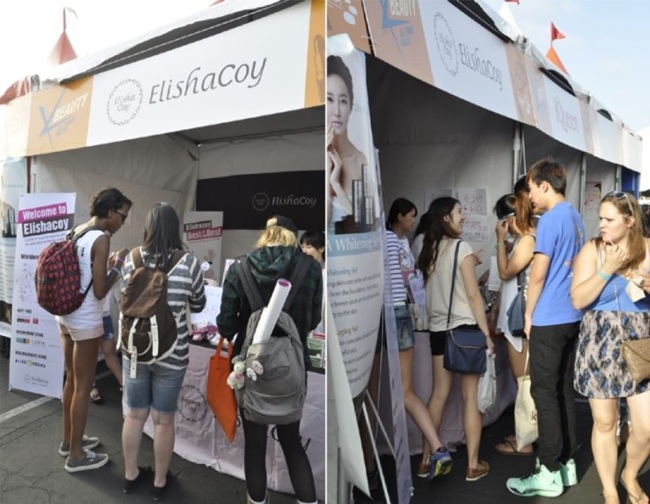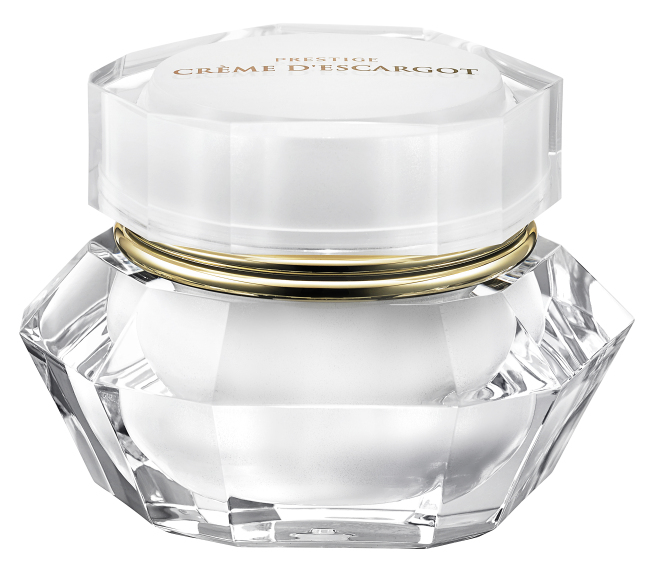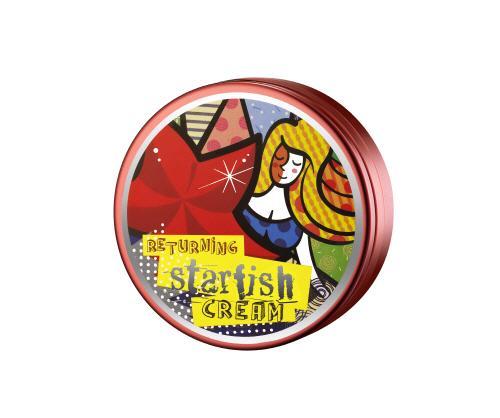Riding the wave of “K-beauty,” South Korean cosmetics are currently emerging as one of the hottest trends in the world.
The global phenomenon has made it possible for some of latecomers to find a niche in overseas markets from the beginning, avoiding tough competition in the domestic cosmetics market, analysts said.
Their overseas success also provided them the leverage to expand in both Korea and abroad.
Cosmetic brand Elisha Koy, first launched in 2007, is one of such brands to go abroad from the beginning.
“We didn’t intentionally look to overseas markets from the beginning,” said a representative from the brand marketing department.
 |
| The Elisha Koy booth at the K-pop convention KCON 2014 held in Los Angeles. Elisha Koy |
According to the marketing department, Elisha Koy exports to over 20 countries and 60 percent of its sales this year were from overseas.
The brand initially had a niche of Korean followers, but got major coverage in Japan for its BB cream product not long after its brand launch.
Their product stood out among dozens of other Korean BB creams due to a high-profile celebrity. “Our BB cream became well-known after Japanese actress Juri Ueno said she used it.”
It’s Skin, launched in 2006, also said its higher popularity overseas was “unintentional.”
“There are categories in cosmetic technology that we occupied in advance, and I believe we were recognized for our quality overseas earlier than in Korea,” said a representative in the company’s global business department.
A communication department official responded via email interview that their snail cream PRESTIGE creme d’escargot, which contains 21 percent snail extracts, became a hit online in China in early 2014 after a popular post on Chinese social media website Weibo.
 |
| PRESTIGE creme d’escargot from It’s Skin It’s Skin |
“A user post compared It’s Skin’s snail cream and a high-end moisturizer and said that our product was just as good as the high-end moisturizer, which went viral and increased sales,” she said. It’s Skin reportedly sold its products in over 20 countries worldwide.
Some recent cosmetic brands have strategically turned to overseas markets from the beginning. Mizon, launched in 2007, was aiming the overseas market from the start to capitalize on the hallyu wave, a company official said.
“We go to conventions overseas to do market research on things such as climate and women’s skin tones,” the representative confirmed.
 |
| Returning Starfish Cream from Mizon. Yonhap |
An official from the National Coordinating Center for Global Cosmetics R&D said that foreigners may be more interested in the fact that a product is Korean, rather than how well-known it is.
“People view a product positively when they find out it’s made in Korea, and if companies market effectively overseas, then they will be able to gain better results than in Korea.”
The overseas exposure has helped them gain more footing in the Korean market. Elisha Koy saw its domestic sales increase after hiring popular comedian Lee Guk-ju as a spokesperson last year, and It’s Skin now markets its snail cream with the catchphrase “sold across the world every six seconds.”
Most of these brands said they will continue pursuing the overseas market.
“We won’t give up on the overseas market,” said the Mizon official.
By Sang Youn-joo (sangyj@heraldcorp.com)



